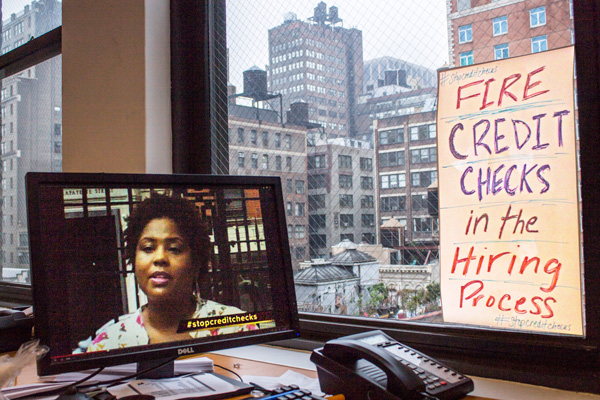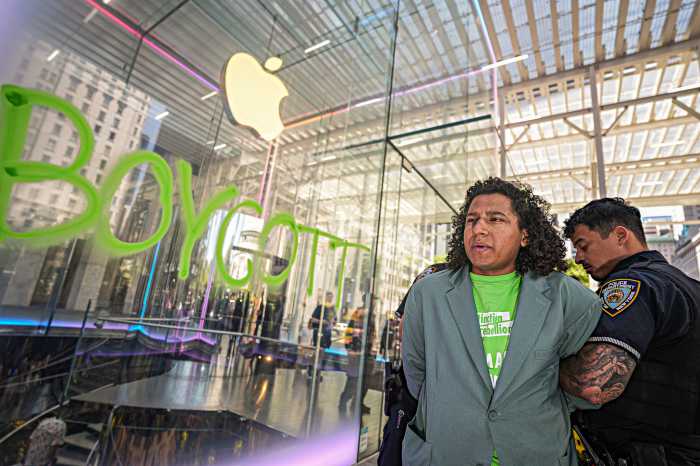
The Chelsea-based New Economy Project coordinated a coalition, which backed legislation aimed at ending discriminatory use of credit checks.
BY ZACH WILLIAMS | A bill passed by the City Council on April 16 will outlaw consumer credit checks for prospective employees in most circumstances.
Elected officials and activists say that there is no conclusive evidence that subpar credit histories reflect the reliability or trustworthiness of job applicants. Yet, a paradox has been at work whereby lingering debt disqualified many people from securing the jobs which could help them improve their financial circumstances, according to supporters of the legislation which passed the council by a 47 to three vote. Mayor Bill de Blasio is expected to sign the bill into law, which would likely take effect this summer.
“With so many New Yorkers out of jobs, a hiring practice that makes obtaining jobs even harder is not economically or socially responsible. This is an unfair practice, as many New Yorkers suffer from bad credit due to unforeseen life circumstances such as medical debt or divorce,” said Councilmember Corey Johnson.
The legislation includes exceptions for police, jobs requiring federal or state security clearance, and other positions with access to large sums of money or sensitive information. In two years, the city will issue a report both assessing how its agencies and non-governmental employers utilize the exemptions and taking into account feedback on the effects of the legislation.
Almost half of all employers in the U.S. investigate the credit history of applicants during the hiring process, according to a coalition of several dozen labor, civil rights and community groups that backed the legislation. A 2010 report called “Discrediting Workers” from local advocacy group Demos found that levels of late payments of 30 days or more actually accompanied higher job performance ratings. Financial pressures provide an incentive to the indebted to work more astutely in hopes of a salary increase or promotion, the report suggested.
The report also challenged the notion that credit checks do not discriminate against people of color, who were the targets of “predatory” lending in higher proportions during the previous decade than the general American population. The federal government won a 2010 case against Bank of America, which disqualified 11.5 percent of African American applicants for entry-level position through credit checks — but only 6.6 percent of white applicants, according to the report.
The Chelsea-based New Economy Project coordinated the coalition, which backed the legislation through a series of public outreach events in recent months. Co-director Sarah Ludwig said in an interview on April 20 that hiring decisions will be more equitable in the near future for workers across the city.
“This is legislation that is really meant to benefit everyone in New York and it is something that makes sure that everybody has equal job opportunity and people aren’t being denied jobs because of completely unrelated information that is in their credit history,” she noted.




































